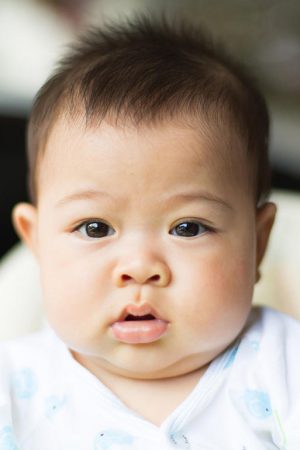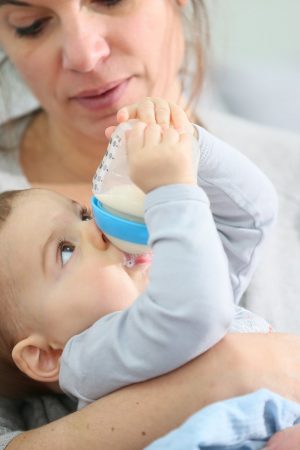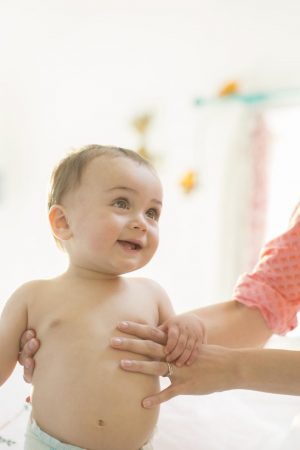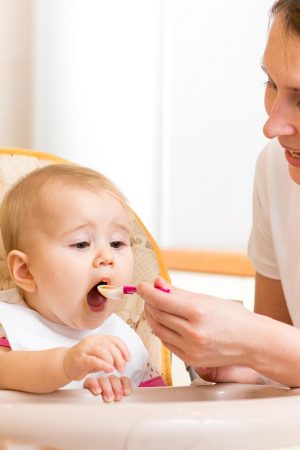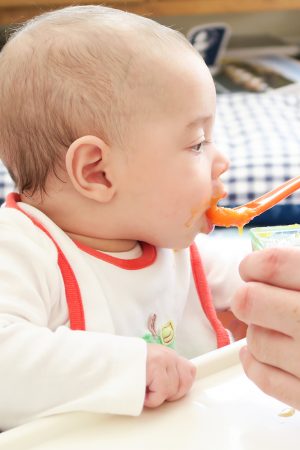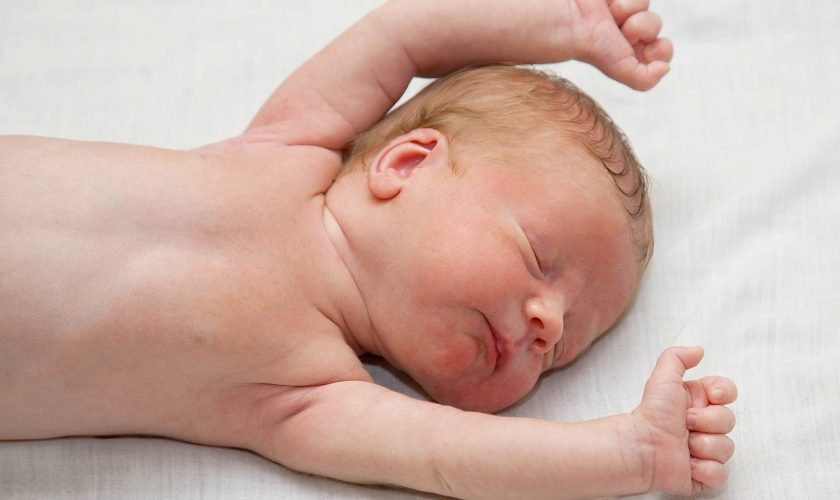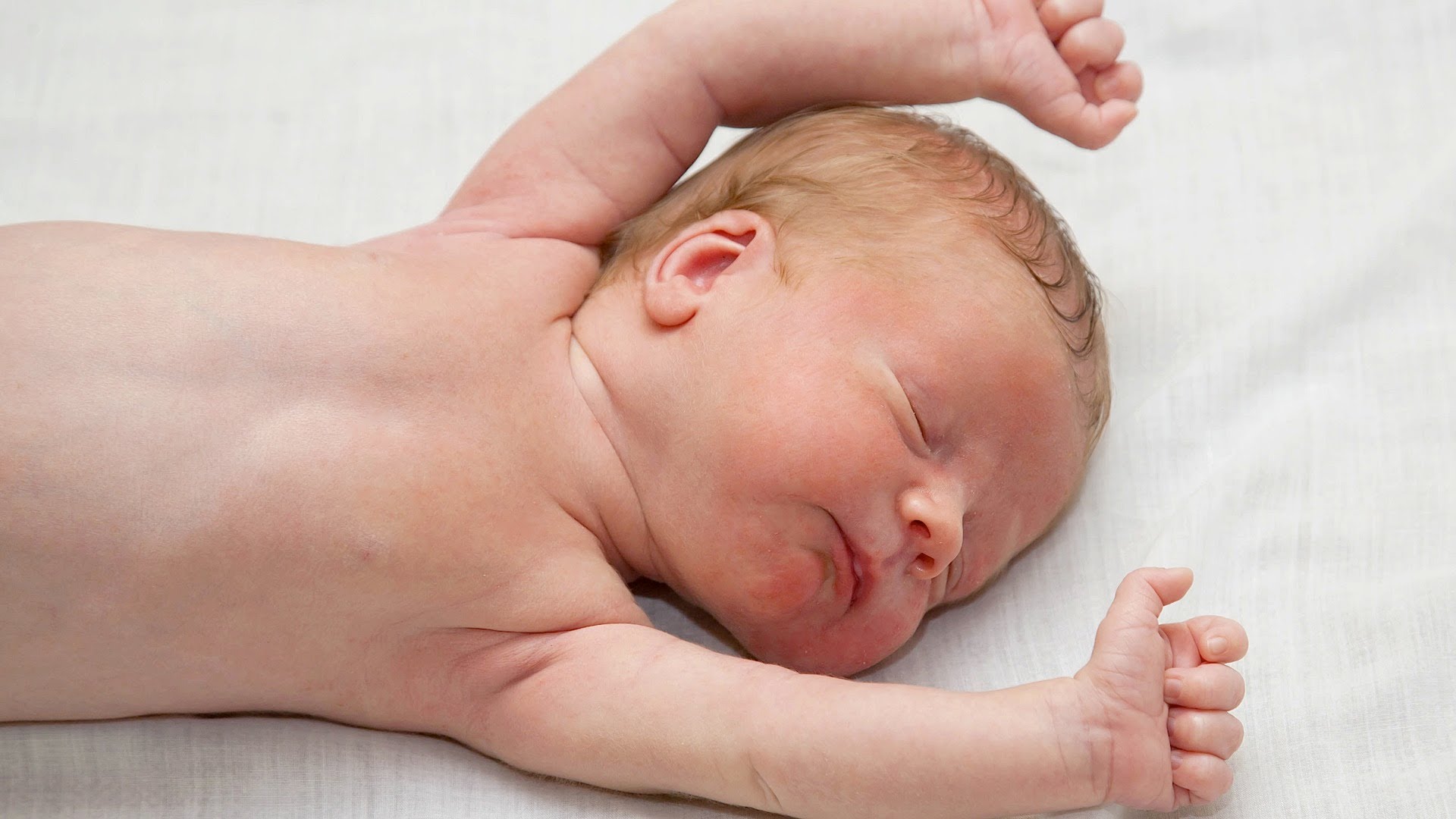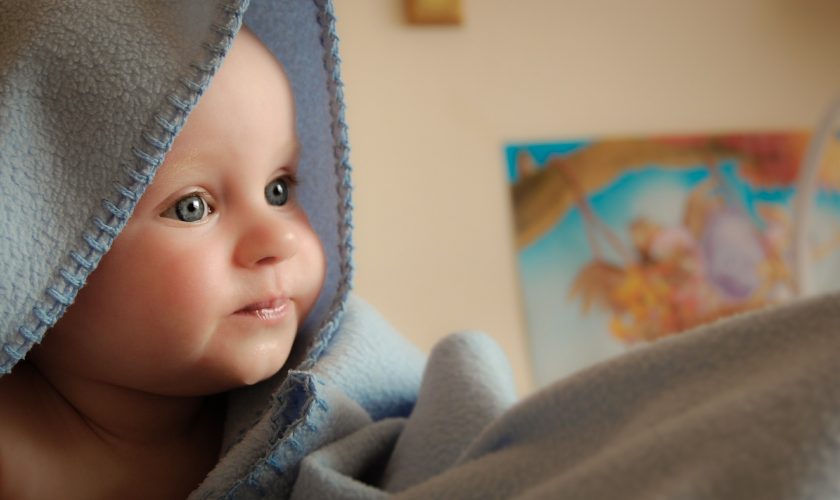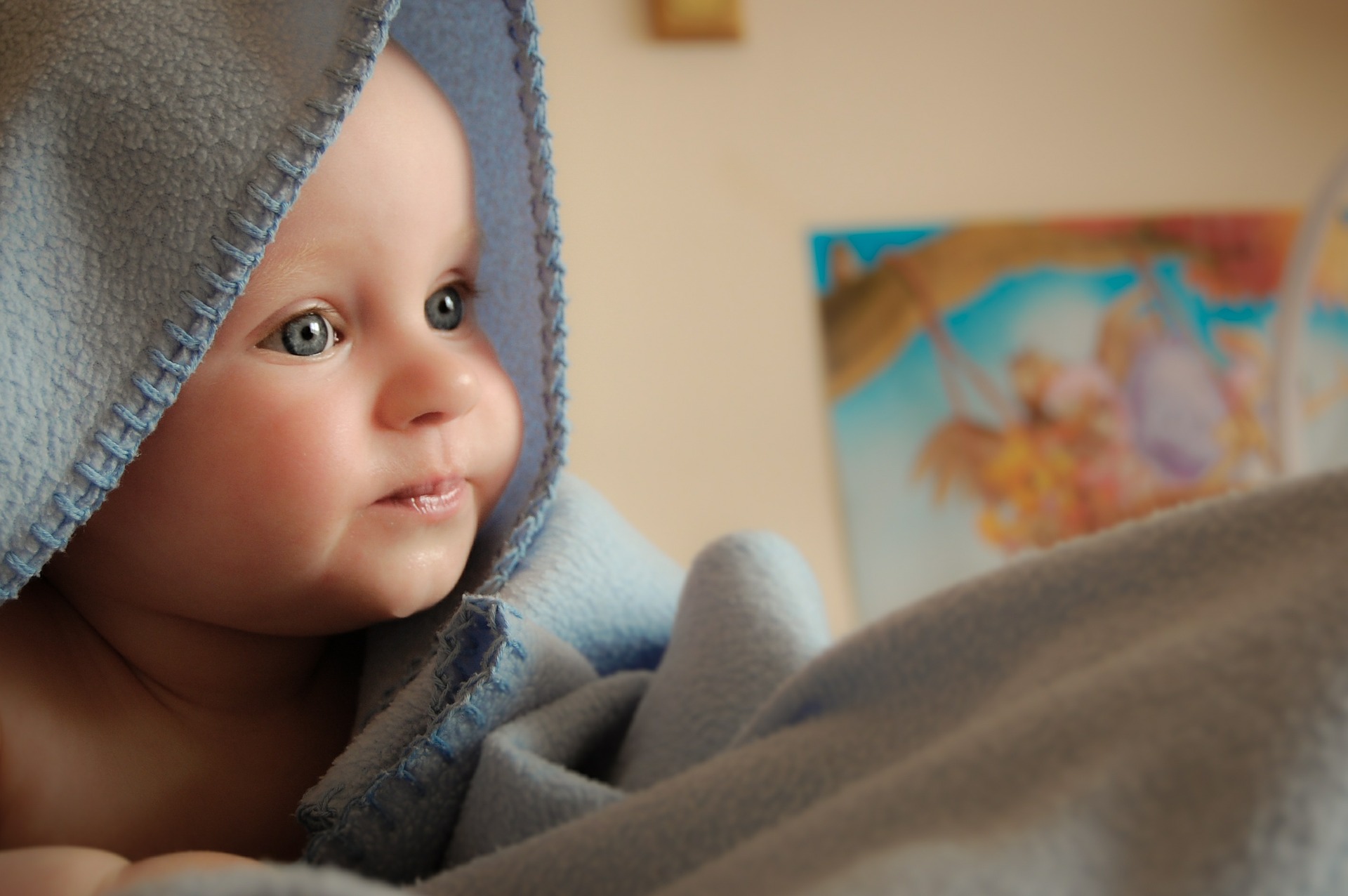You’ve gotten past the newborn phase, and now, in the second month, you’re starting to get a sense of your baby’s personality. You’re also learning what makes your 2-month-old tick — from likes and dislikes, to crying triggers, which are pretty basic at this point: hunger, sleepiness, and dirty diapers.
2 Month Old Baby Developments
Drooling
They won’t yet be teething, but you might notice that your baby is starting to drool more (and making a bit of a mess!), as their salivary glands develop. Fear not though, their drool actually contains a lot of bacteria killing enzymes so it’s no bad thing to get it on their toys or other surfaces they’re interacting with.
Sleeping
You may find that your baby is beginning to sleep in more solid blocks (of 5 or 6 hours) but at 2 months old, it’s still very common for your baby to be waking up in the middle of the night.
Reading to your baby
They might not be able to follow along just yet, but reading to your baby can help to sooth them, whilst also helping them to become more familiar with your voice. Try varying the tone and intonation of your voice to keep them interested and build a better connection.
First Immunisations
When your baby is 2 months old you’ll be offered the first round of immunisations which includes protection against a range of diseases including:
- Rotavirus – A highly infectious virus that can cause gastroenteritis in your baby
- DTaP/IPV/Hib – Protects against diphtheria, tetanus, whooping cough, polio and haemophilus influenza
- Pneumococcal Conjugate Vaccine (PCV) – This protects against pneumococcal infections including pneumonia, meningitis and bronchitis
Your Baby At Two Months
She should be able to:
- Respond to a bell in some way
- Hold her head up for short periods
- Follow objects
- Vocalise in ways other than crying, for example, cooing, gurgling or humming
She will probably be able to:
- Smile in response to your smile (and this time it won’t be wind)
- Hold her head at a 45 degree angle when on her stomach
- Keep her movements smoother and slightly more controlled. Your baby should be able to grab objects voluntarily now rather than in the early days when it was mostly involuntary and instinctive
She may possibly be able to:
- Smile spontaneously
- Laugh out loud or squeal in delight
- Bring both hands together
- Lift her head 90 degrees when on her stomach
- Bear her weight on her legs when supported
